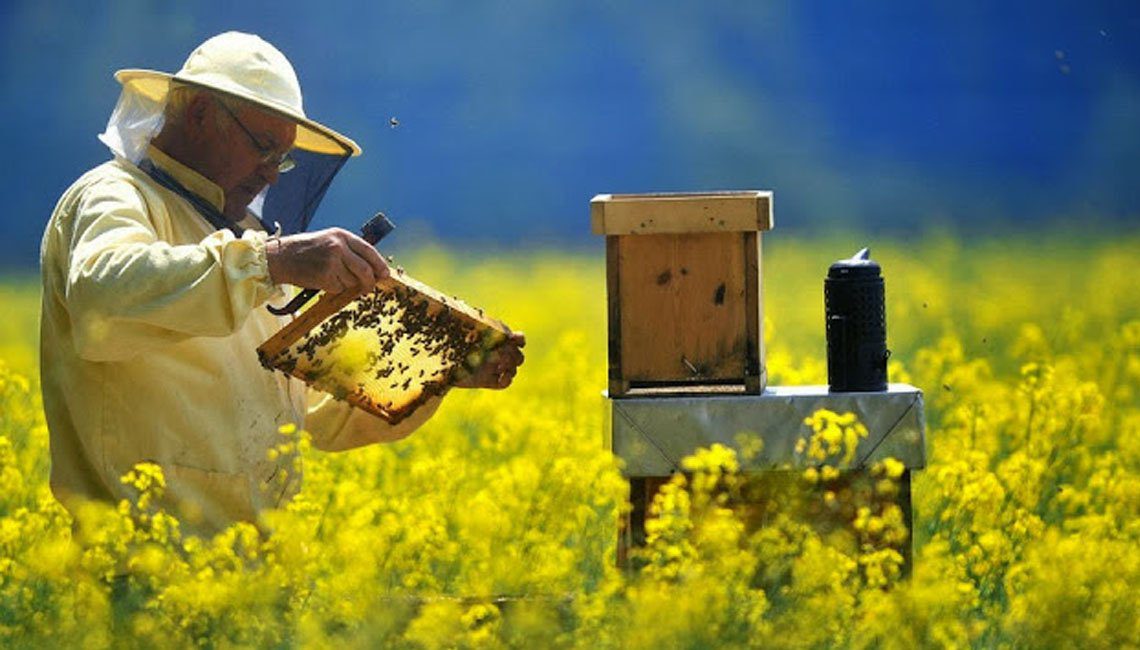Bees are one of the main pollinators in natural ecosystems and agriculture. They contribute to biodiversity, as they help in the reproduction of different plant species, including those that are a source of human food. In addition, bees play an important role in the production of honey, propolis and wax, which are valued in the food and pharmaceutical industry for their health benefits. However, bees face significant threats such as pesticide use, climate change and habitat loss, which can negatively affect ecosystems and food production. It is essential to raise awareness about the importance of bees to ecosystems and to adopt measures to protect them and promote their survival.
Expanding the view on environmental conservation associated with sustainable economic development, beekeeping is an important activity that can significantly contribute to social development – mainly in communities that survive on family farming. Beekeeping can play an important role in employing labor in the countryside and in keeping farmers on their land. Encouraging beekeeping can be relevant from the perspective of sustainable economic development for farming families and communities for several reasons:
- Income generation: The practice can generate income for farming families and communities, especially in rural areas where other sources of income may be limited. Selling honey and other bee products can provide a regular and steady source of income.
- diversification of activities: Beekeeping can be a complementary occupation to other practices agricultural activities, such as crop production and animal husbandry. Diversifying activities can help reduce dependence on a single source of income and increase the resilience of families and communities.
- Local development: Encouraging beekeeping can contribute to local development, especially in rural areas. Honey production can create local jobs, stimulate the local economy and promote the appreciation of local natural resources.
- Environmental preservation: The practice can be carried out in a sustainable way and contribute to the preservation of the environment. Keeping bees can help pollinate plants, increase biodiversity and preserve natural ecosystems.
- Improved quality of life: The activity can contribute to improving the quality of life of families and farming communities, providing a stable source of income and contributing to the preservation of the environment. However, for beekeeping to be a source of social development, it is important that producers have access to up-to-date technologies and knowledge about hive management, beekeeping and commercialization. In order to encourage and implement the entire beekeeping production process, public policies are needed that encourage the cultivation of beehives and the sale of bee products, as well as the protection of bees and the ecosystems in which they live.
Efficient Programs for Family Farming
Efficient projects for family farmers – including those that invest in beekeeping – are of fundamental importance to improve the development of small rural communities and prevent the rural exodus. Family farming is an important source of food production and income generation in many regions of the world, especially in developing countries. Projects that support family farming strengthen local economies and improve the quality of life of the families involved.
For family farmers, beekeeping is a viable activity, as it can be carried out on a small scale, which makes it an attractive option for rural producers. However, for beekeeping to be efficient and profitable, these people must have access to adequate resources and knowledge. Projects that offer training in hive management, supply of protective equipment and management tools, as well as support in marketing and distribution of products, help farmers to maximize their profits and improve their quality of life.
There are several techniques used in beekeeping to take care of bees and maximize the production of honey and its derivatives. Here are some of them:
- Beehives: Beehives are the homes of bees. There are several types of beehives, including wooden, plastic, and ceramic beehives. They are designed to provide a safe and secure environment for bees to live and produce honey.
- Food: Bees need a balanced diet to survive and produce honey. Beekeepers can provide bees with dietary supplements such as sugar syrup to ensure they have enough food during periods of food scarcity.
- Hive Management: Beekeepers should regularly monitor hives to ensure the bees are healthy and productive. This includes inspecting the hives for disease or parasites, checking that the hive has enough space for the bees and for storing honey, and ensuring that the queen is producing healthy eggs.
- Parasite Control: Bees are vulnerable to several parasites, including varroa, mites and wax moths. Beekeepers can use various techniques to control these parasites, including chemical and biological treatments.
- Honey collection: Honey collection is an important aspect of beekeeping. Beekeepers can use several methods to collect honey, including manually extracting honey with a knife, using centrifuges to separate honey from wax combs, and using vacuum extraction techniques.
- Honey Processing: Honey collected from hives needs to be processed before it can be consumed or sold. This includes descaling and pasteurization to ensure food safety.
Encouraging a Sustainable Economy
Beekeeping is a great example of how savings can be combined with environmental conservation. The beekeeping activity can not only generate income for farming families, but also contributes to the preservation of biodiversity and plant pollination. By investing in beekeeping, family farmers have the opportunity to diversify their sources of income and contribute to the sustainable development of their communities. It is important that these investments are made in a responsible manner, taking into account not only economic aspects, but also environmental and social aspects.
Economics linked to environmental conservation is a growing trend as society becomes more aware of the importance of protecting the environment and preserving natural resources. Products from sustainable practices that respect the environment have stood out in the market and won the preference of increasingly demanding consumers.
Therefore, beekeeping and other sustainable activities are an opportunity for farming communities to improve their quality of life, preserve the environment and contribute to the economic development of regions that need economic and human development. It is important that public policies and private investments encourage these practices, in order to promote a more inclusive, sustainable and responsible economy.




